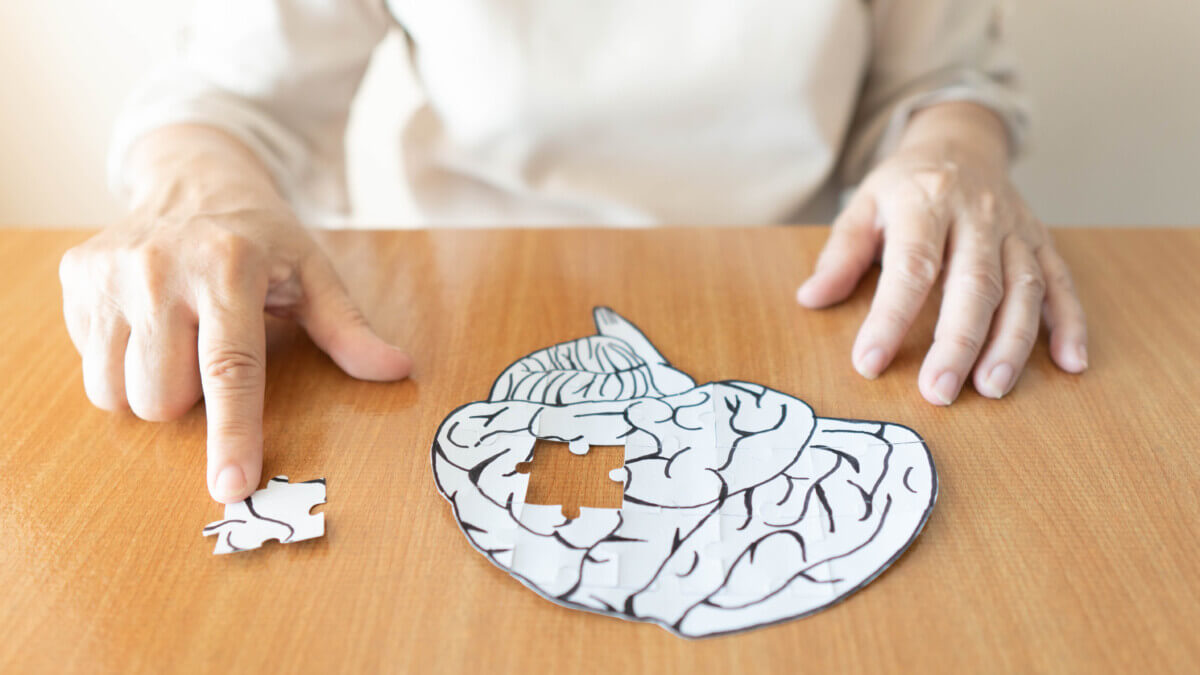
More than 6 million Americans are living with Alzheimer's. By 2050, this number is projected to rise to nearly 13 million. (© Orawan - stock.adobe.com)
ADELAIDE, Australia — Finding the cause of Alzheimer's disease may eventually lead to a cure for the world's most common form of dementia. A new study may have discovered that critical trigger, finding a link between genetic mutations in Alzheimer's patients and the way a person's cells produce energy.
A team from the University of Adelaide found that different mutations in a person's genes impact different cell functions in different ways. However, various mutations related to Alzheimer's seem to affect cells (specifically brain cells) in the same way — disrupting how they use oxygen to create energy.
Zebrafish provide fast answers
In this study, researchers turned to zebrafish to examine these mutations and their link to brain cells. Zebrafish are small freshwater fish which are extremely similar to humans on a molecular, genetic, and cellular level.
Moreover, these fish produce very large families, making it easier for scientists to examine the subtle genetic changes which pass from one generation to the next. In this case, the team analyzed the adult brains of zebrafish carrying gene mutations which increase the risk of developing early-onset Alzheimer’s disease.
Results show a common trend among the fish showing signs of Alzheimer's, with their mutations impacting how brain cells convert oxygen into energy.
“This is very interesting because we know when Alzheimer’s disease eventually develops, people’s brains become severely deficient in energy production,” says lead researcher Dr. Karissa Barthelson in a university release.
“When we realized this common link we took our research one step further and re-analyzed data from another research group that had studied an important Alzheimer’s disease gene in mice,” Barthelson adds. “We could see a similar effect, and this reinforces our confidence that we have found a fundamental, early driver of Alzheimer’s disease in humans.”
‘Stopping the disease before it starts'
Study authors note that the brain is actually home to several different types of cells. They all have different and complex ways of making and sharing the energy they create.
With that in mind, the team is now examining how Alzheimer's disease mutations impact each of these cell types. The answers could lead to a new treatment that prevents genetic mutations from damaging brain cells, causing cognitive decline in roughly six million Americans alone. One in three seniors die of Alzheimer's or other dementia-related complications, according to the Alzheimer's Association.
“It is very satisfying to have found this important common, early factor driving the development of Alzheimer’s disease,” Barthelson continues.
“Energy production is the most fundamentally important cellular activity supporting all other functions, particularly in highly active organs such as brains,” the researcher concludes. “If we can understand in detail what is going wrong with oxygen use and energy production, we may see ways of stopping the disease before it starts – and that would enormously benefit our aging population.”
The study is published in the journal Disease Models and Mechanisms.










